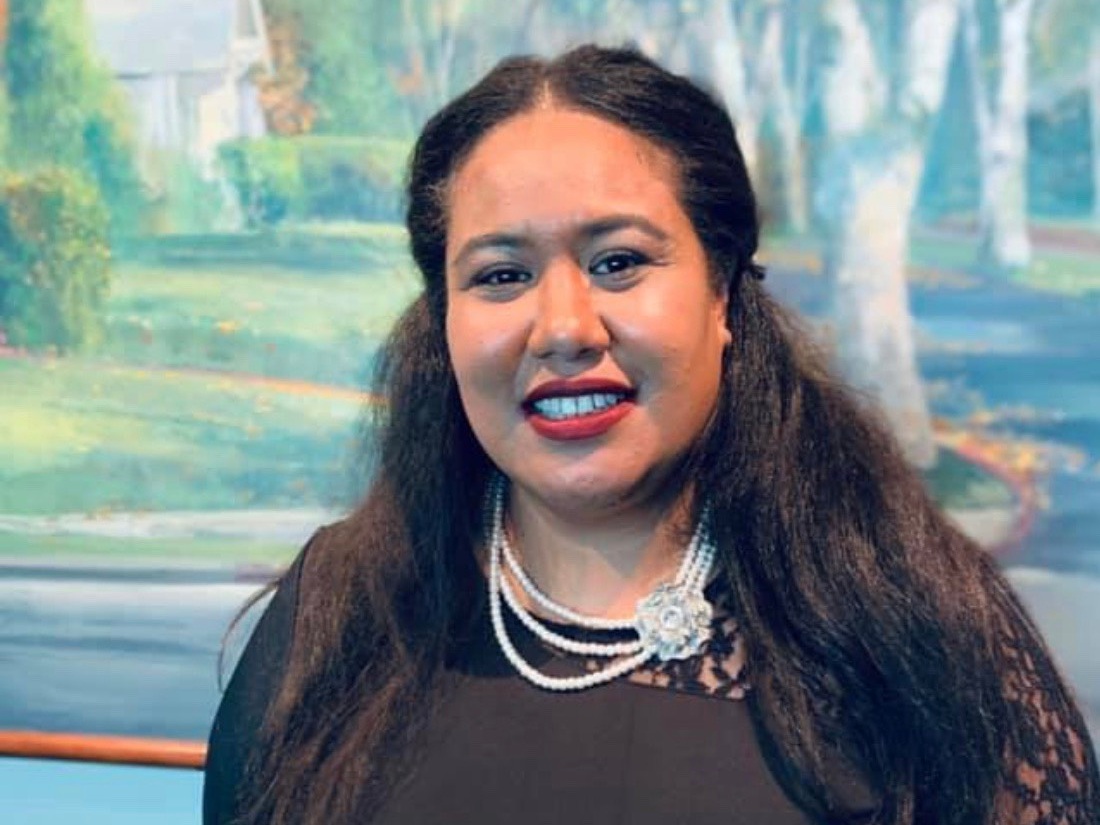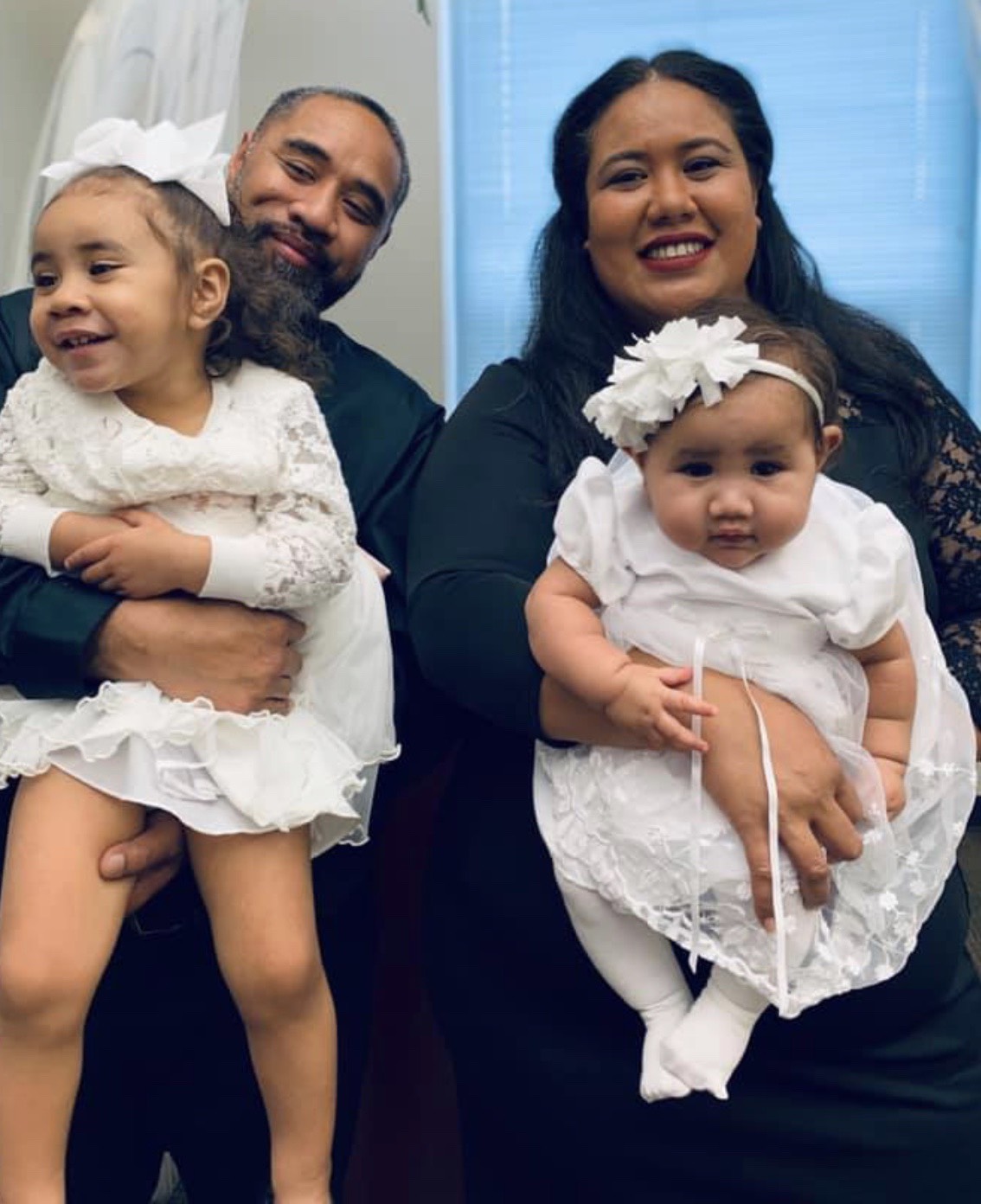Tongan-American Stanford PhD student, Esiteli Hafoka: “We are few but we are mighty”
Esiteli Hafoka | Stanford University | PhD Religious Studies
After taking seven years off from school to help with a family business, Esiteli Hafoka decided to return to college and finish up her degree. She graduated from UC Riverside with a double major in Ancient History and Religious Studies and is now pursuing her PhD in Religious Studies at Stanford University. Esiteli talks about her untraditional journey through higher education, her PhD work on Tongan-American religiosity and the importance of increasing Pacific Islander representation in academia. Most importantly, she wants students to remember that we are few, but mighty.
Esiteli Hafoka
Tell us about your academic journey.
I graduated in 2000 from a high school in Stockton California where the percentage of Pacific Islanders in my school was basically 0.01%. It was me, my siblings, and 2 cousins. At first, I didn’t take college too seriously. I didn’t bother applying even though I had a high GPA. At first, I figured that I wouldn’t go to college and would just save money. I started, though, at a local community college for a year and a half before dropping out in the fall of 2002. It was embarrassing. I ended up on academic probation. There was one class that I just stopped attending and the professor, instead of giving me an F, gave me a D- so that I couldn’t retake the class.
After that, I took a long break from school and worked for my family. My dad and his siblings run a business as electrical contractors in Stockton. We do residential electrical all around the San Joaquin Valley. I worked there for 7 years as a residential electrician before the recession hit. I didn’t know what else to do so my dad suggested I go back to school.
I started off back on academic probation which was tough, so I didn’t qualify for financial aid and I had to pay out of pocket for school tuition and books. I did that for a year in Stockton. I followed my boyfriend at the time to SoCal and did another year at community college before transferring to UC Riverside in 2011 as an Ancient History major. I joined the Pacific Islander Student Alliance at UCR and started attending social justice workshops. We created an outreach program to local high schools which offered after-school tutoring, mentoring, and college-track outings. We were also able to provide two modest scholarships to graduating seniors in the area. It wasn’t much but it could at least buy them a new laptop or books for the first semester. I graduated Magna Cum Laude and Theta Alpha Kappa from UC Riverside with a double major in Ancient History and Religious Studies.
There are very few Pacific Islanders in academia. How did you decide to pursue a PhD in Religious Studies?
When applying to Early Christianity PhD programs, I felt like naturally, those were my interests. At the time, I didn’t know any better. In the beginning, one of my professors/mentors discouraged me from applying to a PhD program right away. She said I wasn’t ready and thought I would be better served if I applied to a Master’s program first. I was heartbroken when she told me that but I’m not the type of person to take a hit and stay down. I knew it was coming from a good place. I took what she said as a way to interrogate further what my interests were, so I reached out to Columbia, UCLA, Harvard and University of Chicago faculty and scoped out my chances of getting in. When they asked me a series of questions about what my potential research projects would be, I realized that she was right. I wasn’t ready for PhD level work, so I took the rest of 2014-2015 to think about what I wanted to do. She did me a favor. She ended up being one of my referees when I applied to graduate school. Although I didn’t read her letter, I was told my recommendations were strong and hers was especially phenomenal.
After taking time to reflect, I knew that I wanted to do work both in Religious Studies and in the community, so I came up with a project where I could look at Tongan-American religiosity within the framework of American Religion, specifically the intersection of race and religion. I then applied to the top 10 programs in the world. I shot for the moon and was hoping for something magical to happen.
Esiteli with her husband and two children.
How did you feel when you got your acceptance letter?
I remember getting the [Stanford] acceptance email. You feel like you’re in dream. I don’t know how to describe the feeling. I wait until the Christmas season to buy a year’s worth of Dri-fit and Elite socks because they’re usually really expensive and the sales are awesome. Not to sound corny or anything but the first few weeks of wearing those socks make you feel like you’re walking on clouds. I guess that’s how I felt when I received my offer of admission to Stanford.
What is your PhD research on?
I'm an American Religions historian focusing on contemporary Tongan-American religiosity which means I look at how Tongans practice their religion here in America. Most of my work up to this point has been on Tongan-American Mormonism but my work is rooted in Tongan Methodism in the American diaspora. I also look at the impact Tongan-American religiosity has on Tongan-American youth in terms of identity formation, community formation, and higher education attainment.
Why is it important for more Pacific Islanders to pursue careers in academia?
I can’t identify with most of my professors. Most professors are white males while more and more students of color are attending college. I think on some level, PhD students of color, particularly those in the humanities, pursue this career to make space for our people and the people/groups/communities we study. We’re done being statistics and we’re over being talked about. We have come to understand that reclaiming our narratives is important. Although there aren’t enough people like us in academia, there are a lot more Pacific Islander PhDs and PhD students than you think. We are few but we are mighty.
Know a Pacific Islander who should be featured? Contact us.


